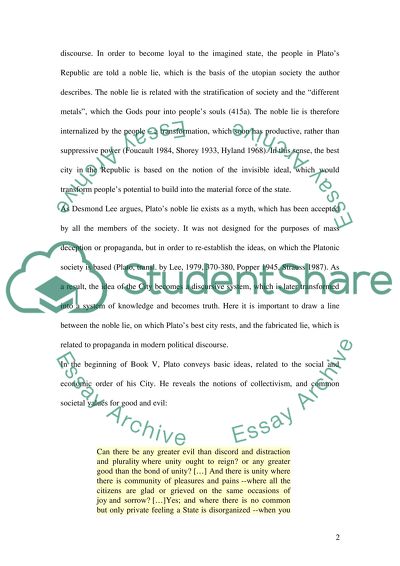Cite this document
(“Utopia and Lies in Plato's Republic Essay Example | Topics and Well Written Essays - 1500 words”, n.d.)
Utopia and Lies in Plato's Republic Essay Example | Topics and Well Written Essays - 1500 words. Retrieved from https://studentshare.org/literature/1432456-why-does-the-best-city-in-platoyies-republic
Utopia and Lies in Plato's Republic Essay Example | Topics and Well Written Essays - 1500 words. Retrieved from https://studentshare.org/literature/1432456-why-does-the-best-city-in-platoyies-republic
(Utopia and Lies in Plato'S Republic Essay Example | Topics and Well Written Essays - 1500 Words)
Utopia and Lies in Plato'S Republic Essay Example | Topics and Well Written Essays - 1500 Words. https://studentshare.org/literature/1432456-why-does-the-best-city-in-platoyies-republic.
Utopia and Lies in Plato'S Republic Essay Example | Topics and Well Written Essays - 1500 Words. https://studentshare.org/literature/1432456-why-does-the-best-city-in-platoyies-republic.
“Utopia and Lies in Plato'S Republic Essay Example | Topics and Well Written Essays - 1500 Words”, n.d. https://studentshare.org/literature/1432456-why-does-the-best-city-in-platoyies-republic.


